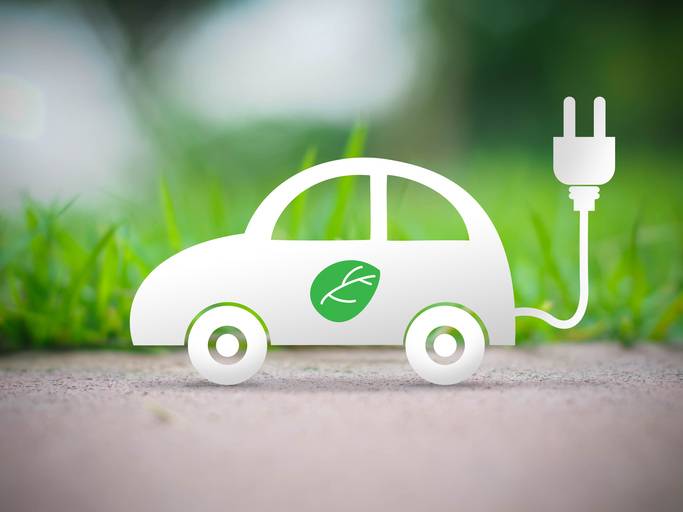[Global Network comprehensive report] According to Reuters news on January 10, global automakers plan to invest a total of 300 billion US dollars (about 2.04 trillion yuan) in the next 5 to 10 years, for electric vehicle technology, most of which From the Volkswagen Group, nearly half of the funds will be invested in the Chinese market. The move will accelerate the electrification transformation of the automotive industry and shift its focus to Asian battery and electric vehicle technology suppliers.
According to Reuters’ exclusive analysis of the public data released by auto companies, the amount of automakers investing in electric vehicles in the future is largely driven by the government’s policy of reducing carbon dioxide emissions. These investments will make great advances in electric vehicle technology, reduce battery costs, extend cruising range, and reduce charging time, making electric vehicles more attractive.
Auto industry executives say that for decades, Chinese automakers have been catching up with manufacturers of internal combustion vehicles in Germany, Japan and the United States. Now, China is expected to lead the development of global electric vehicles. Volkswagen Group CEO Herbert Diess said that the future of Volkswagen will depend on the Chinese market. At present, Volkswagen and China’s two largest automakers, SAIC and FAW Car, have a history of cooperation for decades. Diss said earlier this week that China will become one of the world’s auto powers. China has the right environment and skills to develop a new generation of cars. In addition, China has a very clear policy that requires the automotive industry to switch to electric vehicles.
As China and other countries have more and more restrictions on traditional gasoline and diesel engine models, automakers are accelerating the transition to electric vehicles.
At present, global auto companies’ investment in electric vehicles is about US$91 billion (about RMB617.38 billion), and nearly one-third of them are from Volkswagen Group. Due to the exhaust gas scandal, the Volkswagen Group has paid a multi-billion dollar price, so the group is actively shifting to electric vehicles to get rid of the effects of the exhaust scandal.
Volkswagen Group’s comprehensive electrification program predicts that by 2025, the annual production capacity of electric vehicles in Asia, Europe and the Americas will reach 15 million, including 50 pure electric vehicles and 30 hybrid models. Volkswagen plans to electrify all 300 of its 12 global brands, including Audi and Porsche.
In addition, Daimler is committed to invest 42 billion US dollars (about 284.945 billion yuan), while GM plans to invest 8 billion US dollars (about 54.275 billion yuan) in electric vehicles and autonomous vehicles.
The global automotive industry plans to spend more than 45% of the $135 billion (about RMB 915.894 billion) in electric vehicle investment and procurement expenses in China. At present, China is vigorously promoting the production and sales of electric vehicles through government-defined quotas, credit and incentive systems. Therefore, China’s major automakers, such as FAW Group and Great Wall Motor, may be able to surpass and even surpass the multinational joint venture partners such as Volkswagen, Daimler and GM. These multinational companies are currently expanding their electric vehicle portfolio in China and purchasing large quantities of batteries from Chinese suppliers.
Reuters analyzed the investment and procurement budgets announced by 29 of the world’s top automakers over the past two years, mainly from the US, China, Japan, South Korea, India, Germany and France. These figures do not include planned investment and procurement funds that have not yet been announced. In fact, global automakers’ spending on R&D, design, equipment and procurement may be much higher than the budget analyzed by Reuters. The analysis does not include automotive suppliers, technology companies and large companies in other industries, such as energy, aerospace, electronics and telecommunications, in terms of electric vehicle related expenses.
Alexandre Marian, general manager of American consulting firm AlixPartners, said there is a hot investment in electric vehicles and batteries in the automotive industry. Marianne is also the co-author of a 2018 research report. The study predicts that by 2023, global automakers and suppliers will spend a total of $255 billion (about RMB 1.73 trillion) on electric vehicles. Marianne also said that the automotive industry is currently increasing its investment in electric vehicles and batteries, while seeking more alliances and partners to share higher investment costs.
The alliance of global automakers, such as Volkswagen and its Chinese partners, will be the biggest driver of innovation, especially in the global launch of electric vehicles. Volkswagen Group CEO Des said that Volkswagen is gradually innovating the previous model and introducing the Group’s technology in Europe to the Chinese market. Volkswagen will develop a part of automotive technology for cooperation in the global market in China. This is a major change.
Post time: Jan-14-2019

